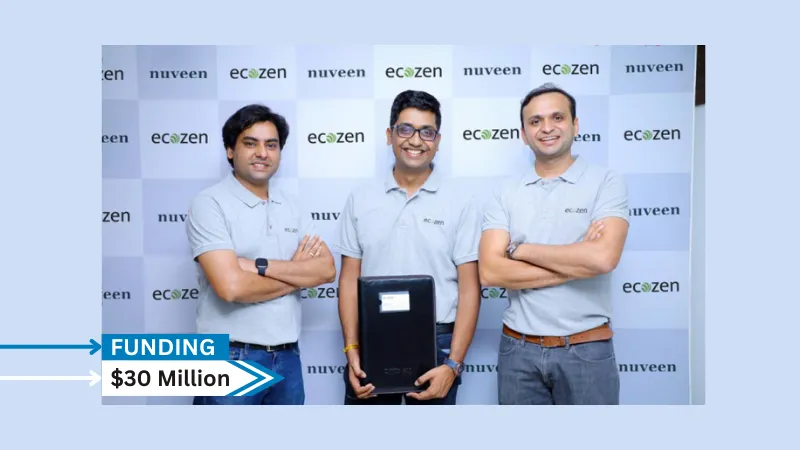
The deeptech startup Ecozen, which focuses on climate change, revealed that it has raised $30 million in debt and equity funding.
According to a statement from the business, Nuveen and current investors participated in the investment round, while the U.S. International Development Finance Corporation (DFC) and InCred Credit Fund provided the debt component.
Read also – Egypt-Based Potcast Production Secures Undisclosed Funding
The money raised will be used by Ecozen to expand its climate-smart technology and satisfy consumer demand for its products. The announcement also stated that the business plans to increase its product portfolio and market presence in Africa and Southeast Asia.
Over the previous two years, the company claims to have grown five times, with profits climbing three times as well. In the current fiscal year, Ecozen expects its revenue to double due to strong demand for its current goods.
Read also – UAE-Based DocsInBox Secures $500K in Funding
By utilizing its technological stack, which includes AI, IoT, thermal energy storage, and sophisticated motors and controls, it intends to penetrate new markets that are shifting to greener energy sources.
“The capital raised will enable us to scale our operations and deepen our market penetration in domestic and international territories. We are committed to empowering customers and expediting the transition to climate-smart technologies on a global scale,” said Ecozen CEO and co-founder Devendra Gupta.
Ecozen completed a Series C financing that brought approximately $25 million in debt and equity finance. Nuveen and Dare Ventures led the Series C equity portion, with participation from Hivos-Triodos Fonds, Caspian, and the Export-Import Bank of India.
About Ecozen
Ecozen develops deeptech solutions that are climate-smart and core technology stacks that include energy storage, IoT, and motor controls. By utilizing these technological stacks in the agriculture sector, Ecozen has transformed irrigation and cold chains, significantly increasing the revenue of more than 100,000 farmers and allowing the production of more than 1 billion units of renewable energy.





